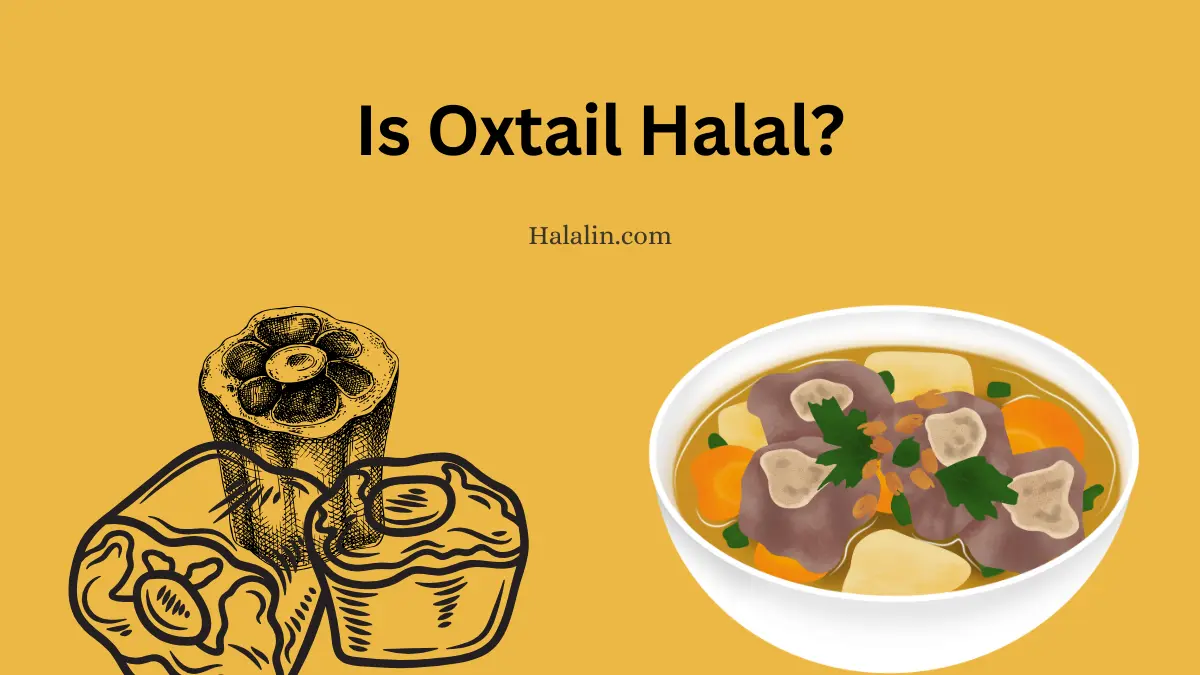Oxtail, a popular ingredient in many cuisines, is the culinary term for the tail of cattle. It’s often used in soups, stews, and braised dishes due to its rich flavor and gelatinous texture. However, for Muslims following Islamic dietary laws, a common question arises: Is oxtail halal? In this article, we will explore whether oxtail is permissible in Islam, discuss halal alternatives, and provide insight into the broader aspects of halal meat.
Understanding Halal Meat in Islam
Before delving into the specifics of oxtail, it’s essential to understand what halal means. Halal, an Arabic term meaning “permissible,” refers to anything allowed under Islamic law. In the context of food, halal meat must come from animals that are slaughtered according to specific Islamic guidelines, ensuring the process is humane and that the animal is healthy at the time of slaughter.
Is Oxtail Halal?
Oxtail can be considered halal if it comes from an animal that was slaughtered according to Islamic law. The meat itself, being from a cow or ox, is not inherently haram (forbidden). Therefore, the key determinant of whether oxtail is halal lies in the method of slaughter. If the cattle were slaughtered following the guidelines of Zabiha (Islamic slaughtering), the oxtail is permissible and permissible to consume.
Read More:
The Importance of Halal Certification
Given the complexities of modern food production, Muslims are advised to seek halal certification when purchasing meat, including oxtail. Halal certification ensures that the entire process, from slaughtering to processing, adheres to Islamic principles. Look for reputable halal certification bodies on packaging when buying oxtail to ensure its permissibility.
Common Uses of Oxtail in Cooking
Oxtail is a versatile ingredient, popular in various cuisines such as Caribbean, Korean, and Italian. It’s often slow-cooked to break down the tough connective tissue, resulting in tender meat that adds depth to dishes like oxtail stew, oxtail soup, and oxtail ragu. For those adhering to permissible dietary practices, ensuring the oxtail is halal allows them to enjoy these traditional dishes without compromising their faith.
Halal Alternatives to Oxtail
For Muslims who cannot find halal-certified oxtail or are looking for alternatives, several options mimic the texture and flavor of oxtail:
- Lamb Shanks: Lamb shanks are a great alternative to oxtail, offering a similar richness and gelatinous texture. They can be slow-cooked in stews and soups just like oxtail.
- Beef Short Ribs: Beef short ribs provide a similar flavor profile to oxtail and can be used in recipes that require slow cooking, delivering tender and flavorful meat.
- Beef Neck Bones: Beef neck bones are another alternative that offers a good amount of collagen, making them ideal for soups and stews.
- Turkey Tails: For those seeking a poultry option, turkey tails can provide a similar richness and are widely used in various cultures.
Nutritional Benefits of Oxtail and Its Alternatives
Oxtail is known for its high collagen content, which is beneficial for skin, joints, and overall health. It also provides a good source of protein, iron, and other essential nutrients. The alternatives mentioned, such as lamb shanks and beef short ribs, also offer similar nutritional benefits, making them excellent substitutes for oxtail in a balanced diet.
How to Source Halal Meat
Finding halal oxtail or its alternatives can be challenging, depending on where you live. Here are some tips:
- Local Halal Butcher: Visiting a local halal butcher is often the best way to ensure the meat you buy is halal. They can provide you with oxtail or suggest alternatives.
- permissible Supermarkets: Many supermarkets now have permissible sections where you can find certified meat, including oxtail.
- Online Halal Meat Providers: There are several online platforms that specialize in delivering halal meat, offering convenience and variety.
Ethical Considerations of Halal Meat Consumption
Halal meat consumption is not just about religious adherence; it also involves ethical considerations. The process of halal slaughter emphasizes the humane treatment of animals, ensuring they are not subjected to unnecessary suffering. This ethical approach resonates with broader concerns about animal welfare and sustainable farming practices.
FAQs about Oxtail and Halal Meat
Q: Is oxtail from non-halal sources permissible?
A: No, oxtail from non-halal sources is not permissible for Muslims. The animal must be slaughtered according to Islamic law.
Q: Can I substitute oxtail in recipes with non-meat options?
A: Yes, you can use plant-based alternatives like mushrooms or jackfruit for a similar texture in vegan or vegetarian recipes.
Q: How can I ensure my oxtail is permissible?
A: Look for halal certification on packaging or purchase from a trusted halal butcher.
Q: Is there a significant taste difference between oxtail and its alternatives?
A: While there are subtle differences, alternatives like beef short ribs and lamb shanks can provide a similar depth of flavor and texture.
Q: Can halal oxtail be used in any cuisine?
A: Yes, halal oxtail can be used in any cuisine, provided it is sourced from a properly slaughtered animal.
Conclusion
Oxtail is a flavorful and nutritious meat that can be enjoyed by Muslims, provided it is sourced from a halal-certified animal. With halal certification, Muslims can confidently use oxtail in their cooking, knowing it aligns with their dietary laws. For those who cannot access halal oxtail, alternatives like lamb shanks, beef short ribs, and turkey tails offer similar flavors and textures. Always ensure that the meat you consume is halal, either by checking for certification or sourcing from a trusted halal provider. This approach not only fulfills religious obligations but also supports ethical and humane treatment of animals in the food industry.

